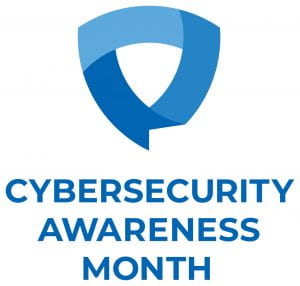By Michael Waksman, Jetico
Working remotely suits some people better than others – there are no long commutes, perhaps more flexible work schedules, and productivity has shown to rise.
Despite some clear advantages to this new normal, there are also hazards to working remotely – specifically in the area of cybersecurity. Let’s take a look at what those risks are and how they can be avoided with a few simple security precautions.
Data Breaches – Private Information in the Wrong Hands
When you’re at home, you don’t have the advantage of working on a network that’s been secured by a professional IT department. Sensitive information is likely exposed to outside threats and you could be more vulnerable to data breaches.
Unfortunately, data breaches are becoming increasingly common. You may have read about cybercriminals targeting email accounts and social media services – so you must take action to avoid your private information falling into the wrong hands.
Tightening up your home cybersecurity, however, doesn’t have to be so difficult. Here are 8 simple steps you can follow to be safer online.
8 Simple Tips
- Use your work laptop. Your personal computer may have all kinds of applications installed that can introduce vulnerabilities and lead to compromised security. That’s why you should stick to using a device provided by your workplace – and use it for work purposes only!
- Create strong passwords. Create unique passwords that include a combination of lower and upper-case letters, numbers, and symbols for all of your accounts. Use a trusted online password manager if you want help keeping track of them all. For example, Password Safe – free and open-source software designed by Bruce Schneier.
- Use a VPN connection.
When using your home internet connection, your online activities are more easily exposed than when using your protected network at the office. To ensure your online data stays private, a VPN blocks out others from watching and collecting your information. - Keep your computer up-to-date.
- Use Multi-factor authentication.
- Keep your webcam covered. Webcam hacking is surprisingly common, so take a page out of Mark Zuckerberg’s book and use a webcam cover or piece of black tape to cover your built-in camera.
- Beware of phishing scams. Phishing scams are still frequent. Avoid opening links or attachments in emails that seem suspicious.
- Look after yourself when working from home! Working from home can be difficult, especially during challenging times. Stay focused by sticking to an established routine, having regular contact with your colleagues, and taking short breaks during the day. Take your eyes off your computer screen and go outside for a while! 🙂
Take Your Cybersecurity to the Next Level
Now you’re at least a bit more informed about basic home cybersecurity. You’re ready to help shut the door on hackers when working remotely. Let’s now take a look at two types of software to significantly reduce your risk of data breaches.
Keep Your Information Private
Even if you follow our 8 tips, there’s still a possibility that outside parties will be able to view and access sensitive information that’s saved on your computer, stored in the cloud, or sent around. Using data encryption protects you from physical and virtual threats.
In case you didn’t know, data encryption is the act of transforming your data into random characters that can only be read with the right key or password. Even if an attacker gets access to your computer or online account, the encryption will prevent them from reading your private data.
Everyone should consider using data encryption software, but it’s especially important for companies that have access to the sensitive information of their customers. If this applies to you, consider investing in encryption software when you’re away from the office and your company’s secure network.
Remove Confidential Data for Good
When you’re working from home, you might find yourself in a position where you have to repurpose an old computer to make it suitable for work use. In this case, you should use data wiping to ensure no personal data gets exposed.
Data wiping is the process of permanently removing the contents of a hard drive. Unlike deleting files by normal means, data wiping also erases the lasting traces of data that are otherwise left behind. Secure data deletion is important when you must be sure your sensitive information won’t be viewed by others.
Feel Secure at Home
For many of us, working from home regularly has been a big adjustment. Cybersecurity might be the last thing we want to think about, but we cannot ignore that we are susceptible to increased risks when we’re outside of the secure office environment. Once we’ve addressed this issue and taken a few simple precautions, it doesn’t take much to transform our homes into cyber fortresses!
